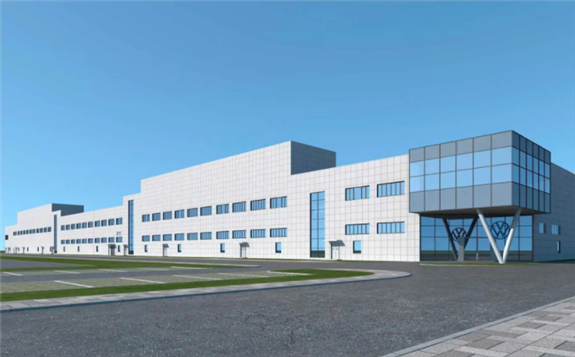Its output will reach 350,000 electric cars per year.

Volkswagen announced the start of construction of a new pure electric car manufacturing plant in China for its Volkswagen Anhui joint venture, between Volkswagen (75% share) and JAC.
It will be the third plant envisioned for MEB-based electric cars in China, after the already completed Anting (SAIC Volkswagen) and Foshan (FAW-Volkswagen).
The construction of Volkswagen Anhui's plant will be completed by mid-2022 and start production of electric cars in the second half of 2023. At full-scale, it should be able to produce up to 350,000 BEVs annually.
Volkswagen Group China plans to deliver up to 1.5 million New Energy Vehicles (NEVs) per year by 2025. The three MEB plants together will be able to produce up to 950,000 per year, which means that even more investments are needed.
"New construction at Volkswagen Anhui includes brownfield repurposing and upscaling of the former JAC plant and the establishment of a completely new body shop area. The new body shop will cover roughly 141,000m2 and makes up part of the total project area, together covering around 500,000m2. The new plant will incorporate a number of energy saving strategies as part of comprehensive efforts to reduce overall carbon emissions, including the adoption of low energy consumption production equipment. A supplier park for battery and components is also planned for construction in the area."
Dr. Stephan Wöllenstein, CEO of Volkswagen Group China, said:
“Volkswagen Anhui is set to become a global hub for e-mobility innovation and a cornerstone of the Group’s decarbonization strategy. As China is the world’s largest single market for NEV vehicles, we need to strengthen our local competence, and Volkswagen Anhui is a significant part of it. With the plant to be powered by green energy from day one, we are demonstrating our commitment to reducing carbon emissions beyond our fleet.”